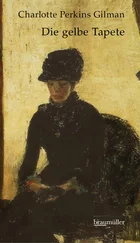Charlotte Gilman - Concerning Children
Здесь есть возможность читать онлайн «Charlotte Gilman - Concerning Children» — ознакомительный отрывок электронной книги совершенно бесплатно, а после прочтения отрывка купить полную версию. В некоторых случаях можно слушать аудио, скачать через торрент в формате fb2 и присутствует краткое содержание. Жанр: foreign_prose, на английском языке. Описание произведения, (предисловие) а так же отзывы посетителей доступны на портале библиотеки ЛибКат.
- Название:Concerning Children
- Автор:
- Жанр:
- Год:неизвестен
- ISBN:нет данных
- Рейтинг книги:5 / 5. Голосов: 1
-
Избранное:Добавить в избранное
- Отзывы:
-
Ваша оценка:
- 100
- 1
- 2
- 3
- 4
- 5
Concerning Children: краткое содержание, описание и аннотация
Предлагаем к чтению аннотацию, описание, краткое содержание или предисловие (зависит от того, что написал сам автор книги «Concerning Children»). Если вы не нашли необходимую информацию о книге — напишите в комментариях, мы постараемся отыскать её.
Concerning Children — читать онлайн ознакомительный отрывок
Ниже представлен текст книги, разбитый по страницам. Система сохранения места последней прочитанной страницы, позволяет с удобством читать онлайн бесплатно книгу «Concerning Children», без необходимости каждый раз заново искать на чём Вы остановились. Поставьте закладку, и сможете в любой момент перейти на страницу, на которой закончили чтение.
Интервал:
Закладка:
Much more will a child so respond where he has full reason to respect the judgment of the commander. Children have the automatic habit of obedience by the same animal inheritance that gives the mother the habit of command; but we so abuse that faculty that it becomes lost in righteous rebellion or crushed submission. The animal mother never misuses her precious authority. She does not cry, "Wolf! Wolf!" We talk glibly about "the best good of the child," but there are few children who are not clearly aware that they are "minding" for the convenience of "the grown-ups" the greater part of the time. Therefore, they suspect self-interest in even the necessary commands, and might very readily refuse to obey in the hour of danger.
It is a commonplace observation that the best children — i. e. , the most submissive and obedient – do not make the best men. If they are utterly subdued, "too good to live," they swell the Sunday-school list of infant saints, die young, and go to heaven: whereas the rebellious and unruly boy often makes the best citizen.
The too obedient child has learned only to do what he is told. If not told, he has no initiative; and, if told wrong, he does wrong. Life to him is not a series of problems to be solved, but a mere book of orders; and, instead of understanding the true imperious "force" of natural law, which a wise man follows because he sees the wisdom of the course, he takes every "must" in life to be like a personal command, – a thing probably unreasonable, and to be evaded, if possible.
The escaped child, long suppressed under obedience, is in no mood for a cheerful acceptance of real laws, but imagines that there is more "fun" in "having his own way." The foolish parent claims to be obeyed as a god; and the grown-up child seeks to evade God, to treat the laws of Nature as if she, too, were a foolish parent.
Suppose you are teaching a child arithmetic. You tell him to put down such and such figures in such a position. He inquires, "Why?" You explain the reason. If you do not explain the reason, he does not understand the problem. You might continue to give orders as to what figures to set down and in what places; and the child, obeying, could be trotted through the arithmetic in a month's time. But the arithmetic would not have gone through him. He would be no better versed in the science of numbers than a type-setter is in the learned books he "sets up." We recognise this in the teaching of arithmetic, and go to great lengths in inventing test problems and arranging easy stages by which the child may gradually master his task. But we do not recognise it in teaching the child life. The small acts of infancy are the child's first problems in living. He naturally wishes to understand them. He says, "Why?" To which we reply inanely, "Because I tell you to!" That is no reason. It is a force, no doubt, a pressure, to which the child may be compelled to yield. But he is no wiser than he was before. He has learned nothing except the lesson we imagine so valuable, – to obey. At the very best, he may remember always, in like case, that "mamma would wish me to do so," and do it. But, when cases differ, he has no guide. With the best intentions in life, he can but cast about in his mind to try to imagine what some one else might tell him to do if present: the circumstances themselves mean nothing to him. Docility, subservience, a quick surrender of purpose, a wavering, untrained, easily shaken judgment, – these are the qualities developed by much obedience.
Are they the qualities we wish to develope in American citizens?
III
TWO AND TWO TOGETHER
"If not trained to obedience, what shall the child be trained to?" naturally demands the outraged parent. To inculcate that first of virtues has taken so much time and effort that we have overlooked the subsequent qualities which require our help, and feel rather at sea when this sheet anchor is taken from us.
But it is not so hard a problem, when honestly faced. A child has a body and a mind to be nourished, sheltered, protected, allowed to grow, and judiciously trained.
We are here considering the brain training; but that is safely comparable to – is, indeed, part of – the body training, for the brain as much as the lungs or liver is an organ of the body. In training the little body, our main line of duty is to furnish proper food, to insure proper rest, and to allow and encourage proper exercise. Exactly this is wanted to promote right brain growth. We do not wish to overstimulate the brain, to develope it at the expense of other organs; but we do wish to insure its full natural growth and to promote its natural activities by a wise selection of the highest qualities for preferred use. And we need more knowledge of the various brain functions than is commonly possessed by those in charge of young children.
The office of the brain we are here considering is to receive, retain, and collate impressions, and, in retaining them, to hold their original force as far as possible, so that the ultimate act, coming from a previous impression, may have the force of the original impulse. The human creature does not originate nervous energy; but he does secrete it, so to speak, from the impact of natural forces. He has a storage battery of power we call the will. By this high faculty we see a well-developed human being working steadily for a desired object, without any present stimulus directed to that end, even in opposition to prevent stimulus tending to oppose that end. This width of perception, length of retention, storage of force, and power of steady, self-determined action distinguish the advanced human brain.
Early forms of life had no brains to speak of. They received impressions and transmitted them in expressions without check or discrimination. With the development of more complex organisms and their more complex activities came the accompanying complexity of brain, which could co-ordinate those activities to the best advantage. Action is the main line of growth. Conditions press upon all life, but life is modified through its own action under given conditions. And the relative wisdom and success of different acts depend on the brain power of the organism.
The superiority of races lies in better adaptation to condition. In human life, in the long competition among nations, classes, and individuals, superiority still lies in the same development. Power to receive and retain more wide, deep, and subtle impression; power to more accurately and judiciously collate these impressions; power to act steadily on these stored and selected impulses rather than on immediate impulses, – this it is which marks our line of advance.
The education of the child should be such as to develope these distinguishing human faculties. The universe, speaking loudly, lies around every creature. Little by little we learn to hear, to understand, to act accordingly. And this we should teach the child, to recognise more accurately the laws about him and to act upon them.
A very little child does this in his narrow range exactly as does the adult in wider fields. He receives impressions, such as are allowed to reach him. He stores and collates those impressions with increasing vigour and accuracy from day to day; and he acts on the sum of those impressions with growing power. Naturally, his range of impression is limited, his power of retention is limited, his ability to relate the impression retained is limited; and his action is at first far more open to immediate outside stimulus, and less responsive to the inner will-force, than that of an adult. That is the condition of childhood. It is for us to gently, delicately, steadily surround the child with such conditions as shall promote this orderly sequence of brain function rather than to forcibly develope and retain his more primitive methods.
Читать дальшеИнтервал:
Закладка:
Похожие книги на «Concerning Children»
Представляем Вашему вниманию похожие книги на «Concerning Children» списком для выбора. Мы отобрали схожую по названию и смыслу литературу в надежде предоставить читателям больше вариантов отыскать новые, интересные, ещё непрочитанные произведения.
Обсуждение, отзывы о книге «Concerning Children» и просто собственные мнения читателей. Оставьте ваши комментарии, напишите, что Вы думаете о произведении, его смысле или главных героях. Укажите что конкретно понравилось, а что нет, и почему Вы так считаете.












